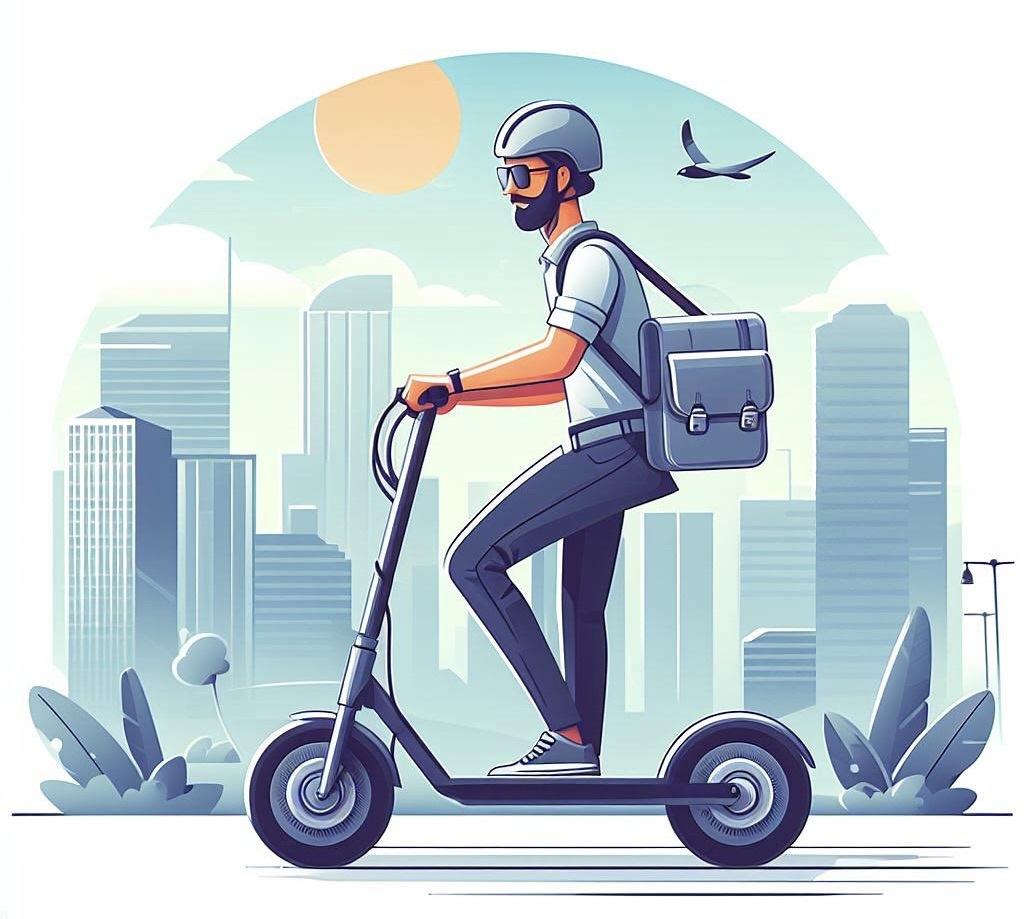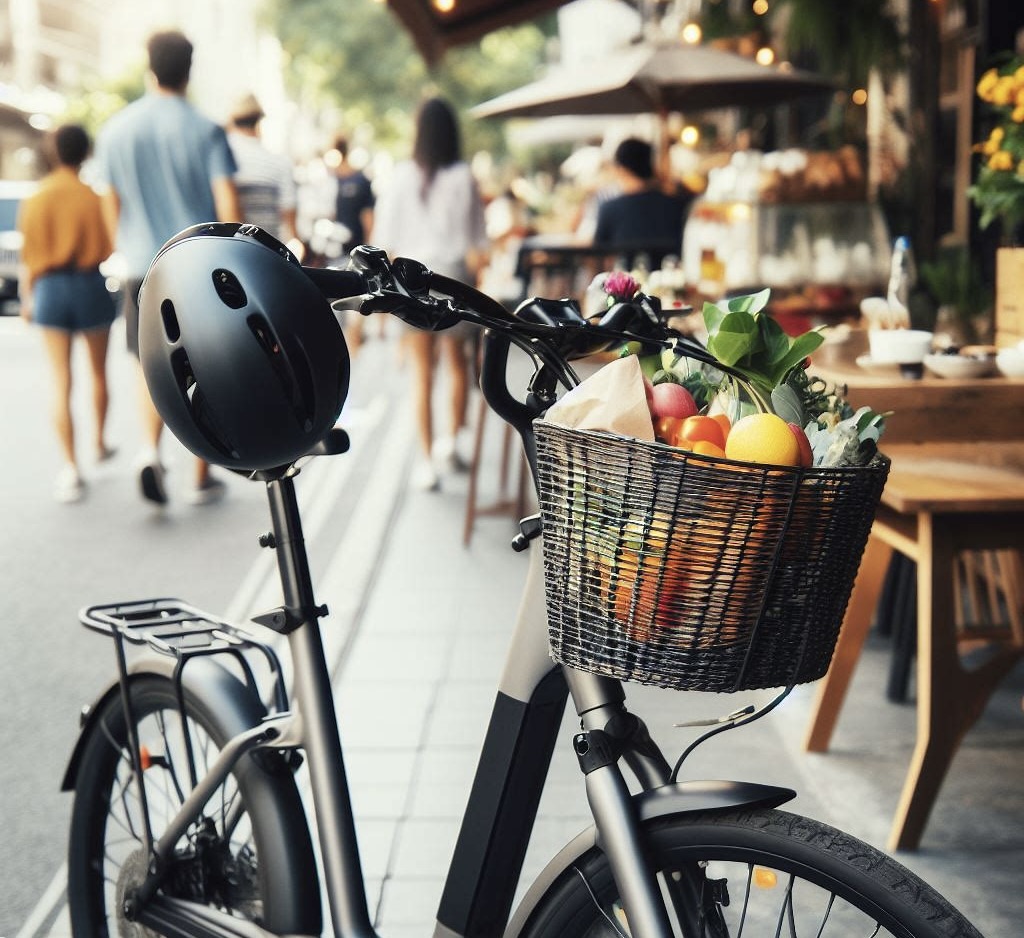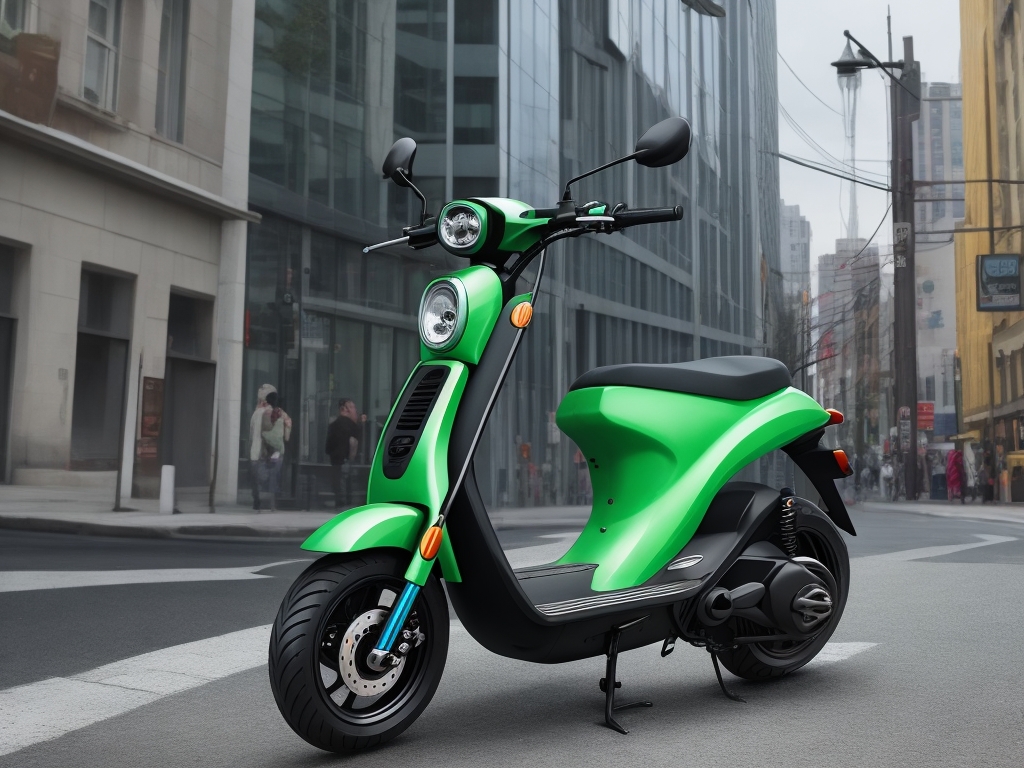
The rise of electric bikes (e-bikes) and electric scooters as eco-friendly modes of transportation is a response to the increasing awareness of environmental issues and the demand for sustainable alternatives to traditional vehicles. E-bikes and scooters provide a bridge between conventional bicycles and gasoline-powered vehicles, making them a preferred choice for urban commuters and environmentally-conscious individuals.
These electric vehicles offer eco-friendly commuting, as they produce zero emissions, contributing to reduced air pollution and a smaller carbon footprint. They are also cost-effective, making them an economical choice for daily transportation. Their convenience, efficiency, and health benefits, such as promoting an active lifestyle, all contribute to their growing popularity.
Eco-Friendly Commuting
One of the standout features of electric bikes and scooters is their remarkable eco-friendliness. They are battery-powered, in stark contrast to conventional cars and motorcycles, which rely on fossil fuels and emit harmful emissions into the atmosphere. When you choose to embrace electric bikes and scooters as your preferred mode of transportation, you are actively contributing to a cleaner environment and a healthier planet.
Opting for electric bikes and scooters has a direct impact on your personal carbon footprint. By choosing these zero-emission vehicles, you are taking a proactive step toward reducing your environmental impact. This not only benefits the world as a whole but also helps you lead a more environmentally responsible lifestyle.
Convenient and Efficient
The appeal of electric bikes and scooters extends beyond their eco-friendliness and cost-effectiveness. These modes of transportation offer a level of convenience and efficiency that can revolutionize urban commuting.
One of the standout features of e-bikes and electric scooters is their maneuverability. They are lightweight and designed to effortlessly navigate through urban traffic. Unlike conventional cars, which often get stuck in traffic jams or find it challenging to squeeze through congested streets, e-bikes and scooters weave through the gridlock with ease. This agility means that you can reach your destination faster, saving both time and patience.
If you’ve ever spent precious minutes circling the block in search of a parking spot, you’ll appreciate the convenience of electric bikes and scooters. These vehicles are compact and don’t require a dedicated parking space. You can easily find a spot to park them, avoiding the frustration and stress that often accompany the search for a parking spot in a busy city.
Electric bikes and scooters are excellent solutions for the “last mile” challenge in urban transportation. They are ideal for bridging the gap between public transportation stations and your final destination. Instead of relying solely on buses, trains, or subways, you can hop on an e-bike or scooter to complete the last leg of your journey efficiently. This makes your entire commute seamless and hassle-free.
By avoiding traffic congestion and parking hassles, e-bikes and scooters can significantly reduce your commute time. You can zip through short distances without the stress of waiting in long queues of vehicles. For urban dwellers who value their time, this mode of transportation is a game-changer.
Electric bikes and scooters are also low-maintenance vehicles. They have fewer components and moving parts compared to traditional cars and motorcycles, which translates to reduced maintenance costs and less time spent in repair shops. This convenience extends not only to your daily commute but also to the overall ownership experience.
Reduced Noise Pollution
Noise pollution is a pervasive issue, often overlooked but certainly detrimental to the quality of life. Conventional vehicles, particularly motorcycles and cars, are major contributors to the cacophony of city life. The incessant revving of engines and honking of horns create a constant auditory assault, leading to stress and annoyance among residents.
Electric bikes and scooters, in this regard, offer a respite from the auditory chaos. These eco-friendly alternatives operate with minimal noise, if any at all. They glide through the streets almost silently, gracefully cutting through the urban soundscape. This unique attribute is a substantial benefit, reducing noise pollution and creating more peaceful and pleasant urban environments.
The significance of noise reduction goes beyond mere tranquility. Studies have shown that excessive noise pollution can have adverse effects on human health, including increased stress levels, sleep disturbances, and even cardiovascular problems. By choosing electric bikes and scooters for your daily commute or leisurely rides, you are contributing to a quieter and more serene urban experience, which, in turn, has a positive impact on your well-being.
Reduced noise pollution has the potential to improve community cohesion and enhance the overall quality of life in cities. Quiet streets foster better communication, social interaction, and a more pleasant living environment for residents. In a world where urbanization is on the rise, the choice to embrace electric bikes and scooters is not just about sustainable transportation but also about fostering healthier, happier, and more harmonious communities.
Environmental Impact

The environmental impact of electric bikes and scooters cannot be overstated. These eco-friendly modes of transportation are making a substantial and positive contribution to the fight against climate change and the preservation of our planet.
One of the most pressing global challenges is reducing greenhouse gas emissions, which are primarily responsible for the ongoing climate crisis. As battery-operated machines, e-bikes and scooters produce zero tailpipe emissions, significantly mitigating the release of harmful gases into the atmosphere. This reduction in greenhouse gas emissions is a substantial step toward curbing global warming and addressing climate change.
Additionally, the adoption of electric bikes and scooters helps conserve fossil fuels. These non-renewable resources are finite, and their excessive use not only depletes them but also contributes to environmental degradation. By choosing electric vehicles over traditional gasoline-powered ones, individuals collectively reduce the demand for fossil fuels, helping to safeguard these valuable resources for future generations.
The broader environmental impact extends to the preservation of natural landscapes, wildlife habitats, and cleaner air quality. Reduced emissions from electric bikes and scooters have a cascading effect, benefiting ecosystems and human health alike. The positive influence of these eco-friendly vehicles ripples through the environment, creating a healthier and more sustainable world for all.
A Boost for Local Economies
The adoption of electric bikes and scooters isn’t just about environmental benefits; it can also breathe new life into local economies. These sustainable transportation options offer a ripple effect of positive economic consequences that can revitalize communities.
One of the direct economic benefits comes from the reduction in fuel imports. As more people switch to electric bikes and scooters, the demand for gasoline decreases. This means less money flowing out of local economies to purchase imported fuel. The funds that would have otherwise gone to oil-producing nations can now be retained and redirected to support local businesses and investments.
The manufacturing and maintenance of electric bikes and scooters often occur locally. As these eco-friendly vehicles gain popularity, more manufacturers, repair shops, and dealerships spring up within communities. This, in turn, generates employment opportunities, stimulating economic growth. Jobs related to the production and servicing of electric bikes and scooters not only benefit the local workforce but also foster a sense of self-reliance and sustainability.
The presence of electric bikes and scooter-sharing programs can boost tourism, drawing visitors who are interested in exploring cities sustainably. This influx of tourists can stimulate local businesses, from restaurants and shops to tour guides and accommodations, further contributing to the economic vitality of the area.

